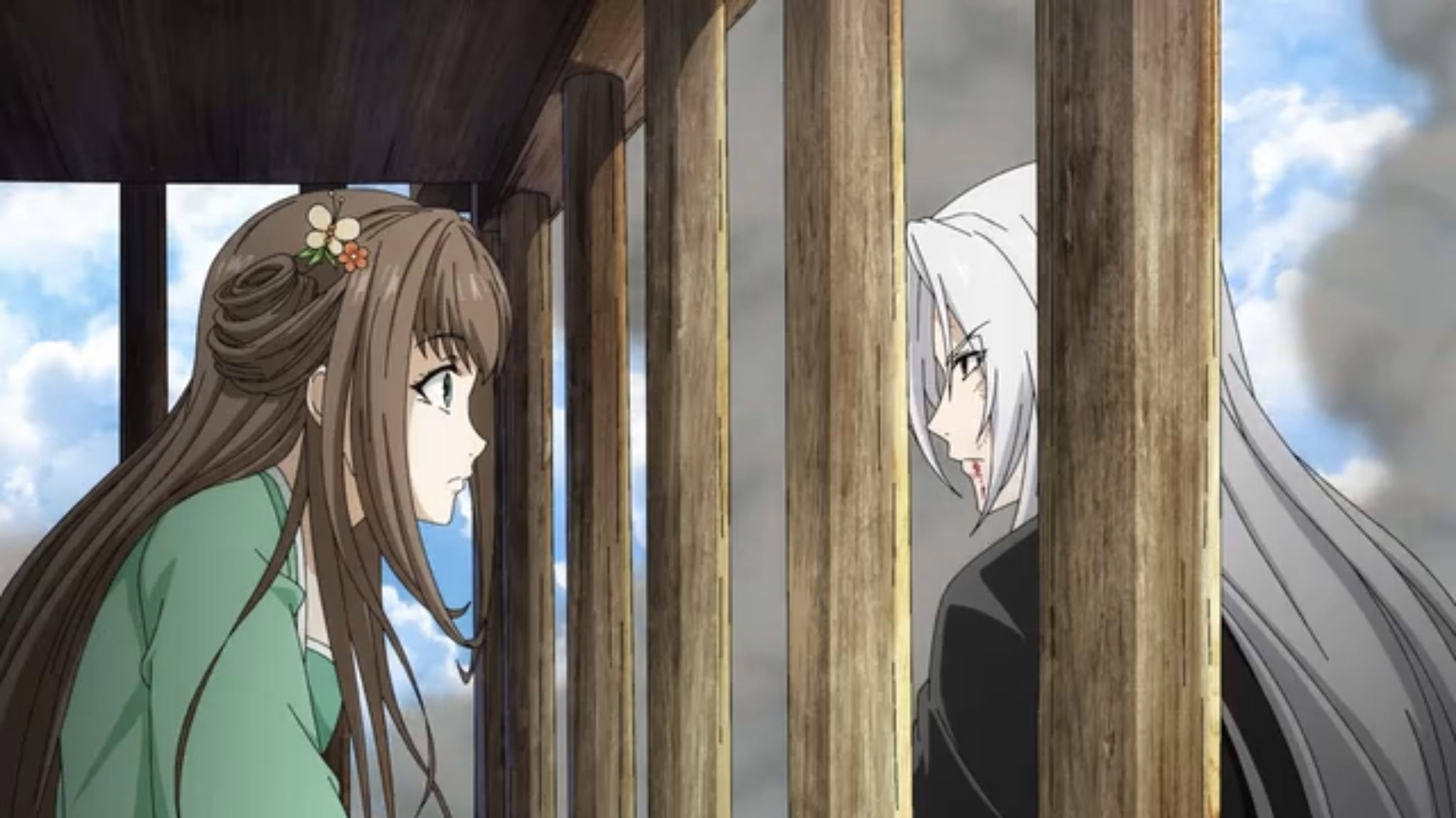A Devil’s Due And A Fairy’s Wish: Exploring The Complex Watch Love In "Fairy And Devil"
A Devil’s Due and a Fairy’s Wish: Exploring the Complex Watch Love in "Fairy and Devil"
Related Articles: A Devil’s Due and a Fairy’s Wish: Exploring the Complex Watch Love in "Fairy and Devil"
Introduction
In this auspicious occasion, we are delighted to delve into the intriguing topic related to A Devil’s Due and a Fairy’s Wish: Exploring the Complex Watch Love in "Fairy and Devil". Let’s weave interesting information and offer fresh perspectives to the readers.
Table of Content
A Devil’s Due and a Fairy’s Wish: Exploring the Complex Watch Love in "Fairy and Devil"

The recent hit Chinese drama, "Fairy and Devil," (苍兰诀) captivated audiences worldwide not only with its charming leads and fantastical storyline but deswegen with its subtly nuanced portrayal of love – a love that transcends the traditional boundaries of good versus evil, heaven versus hell, and even time itself. While the central romance between the cold, powerful Devil Lord Dongfang Qingcang and the innocent, optimistic fairy Xiao Lanhua is undeniably the heart of the show, the intricate details of their relationship, specifically their interactions with timepieces, offer a fascinating lens through which to examine the evolution of their bond. The watches, both literal and metaphorical, become zeugungsfähig symbols of their shifting power dynamics, unspoken desires, and ultimately, their enduring love.
The most obvious example of this watch-centric symbolism lies in the celestial clock within the Moon Tribe’s sacred grounds. This clock, a magnificent astronomical instrument depicting the celestial movements and cycles of the heavens, serves as a constant reminder of the predetermined fate that binds Xiao Lanhua to her role as the Moon Tribe’s protector and, more importantly, to her eventual encounter with Dongfang Qingcang. The clock’s relentless ticking represents the inexorable passage of time, a force that initially seems to work against their burgeoning love. Their first meeting, a chaotic clash of power, is punctuated by the backdrop of this imposing clock, highlighting the seeming impossibility of their connection – a fairy and a devil, bound by fate but seemingly destined for conflict. This initial impossibility is mirrored in the perceived disparity in their power and status; the celestial clock represents the cosmic order that seemingly dictates their opposition.
However, as their relationship deepens, the celestial clock’s significance shifts. It’s no longer a symbol of their predetermined separation but rather a witness to their unconventional love story. The clock’s unwavering rhythm becomes a counterpoint to the chaotic and unpredictable nature of their feelings, showcasing the enduring strength of their bond against the backdrop of cosmic inevitability. The ticking of the clock becomes a subtle reminder of the preciousness of each moment they share, underscoring the fleeting nature of time and the importance of cherishing their connection.
Beyond the literal celestial clock, the drama employs a more subtle, metaphorical use of "watches" to highlight the changing power dynamics between Dongfang Qingcang and Xiao Lanhua. Initially, Dongfang Qingcang holds the power, a powerful devil lord who dominates and controls. He is the "watcher," observing Xiao Lanhua, manipulating her, and even imprisoning her. His perception of her is often skewed by his own past traumas and his inherent distrust of the world. He watches her, studies her, and attempts to control her, not realizing the depth of his own feelings. His "watch" over her is a manifestation of his power, a symbol of his dominance.
However, as Xiao Lanhua’s unwavering kindness and selfless love chip away at his hardened exterior, the power dynamics begin to shift. Xiao Lanhua, in turn, becomes a subtle "watcher" of his emotional landscape. She doesn’t overtly control him, but she observes his reactions, his vulnerabilities, and his gradual softening. She witnesses his transformation from a ruthless devil lord to a man capable of love and compassion. Her "watch" is one of empathy, patience, and unwavering belief in his capacity for change. This shift in their roles as "watchers" is a crucial turning point in their relationship, marking the beginning of a more equal and reciprocal dynamic.
The concept of "watching" deswegen extends to the external forces that constantly threaten their love. The heavens, the other immortals, and even the lingering effects of Dongfang Qingcang’s past actions all act as "watchers," constantly judging and testing their relationship. These external forces represent the societal and cosmic obstacles that stand in the way of their unconventional love. Their ability to overcome these obstacles, to withstand the scrutiny of the "watchers," serves as a testament to the strength and resilience of their bond.
Furthermore, the act of "waiting" becomes a significant theme intertwined with the concept of watching. Xiao Lanhua waits patiently for Dongfang Qingcang to overcome his demons and embrace his love for her. She waits for him to break free from the chains of his past and find redemption. Her unwavering patience and faith are crucial to his transformation. Similarly, Dongfang Qingcang, in his own way, waits for Xiao Lanhua’s acceptance, for her to truly see him beyond his monstrous exterior. He waits for her to trust him, to believe in the possibility of a future where their love can flourish despite the odds. This mutual waiting, this shared endurance, strengthens their bond and underscores the depth of their commitment to each other.
The final scenes of the drama, where their love is ultimately tested and solidified, further emphasize the symbolism of watching and waiting. The ultimate "watch" becomes their shared future, a future they actively create together, defying the predetermined fates and cosmic obstacles that had once seemed insurmountable. They become the "watchers" of their own destiny, actively shaping their future and ensuring the longevity of their love. The celestial clock, which once represented the limitations of their fate, now stands as a testament to their triumph over adversity, a silent witness to their enduring love story.
In conclusion, the interplay of "watching" and "waiting" in "Fairy and Devil" extends beyond the literal presence of the celestial clock. It permeates the entire narrative, creating a rich tapestry of symbolism that enriches the central romance. The evolving power dynamics between Dongfang Qingcang and Xiao Lanhua, the external forces that challenge their love, and their mutual patience and faith all contribute to a complex and compelling exploration of love, fate, and the enduring power of menschengerecht connection. The "watches," both literal and metaphorical, serve as zeugungsfähig symbols, guiding the viewers through the emotional journey of these two unlikely lovers, highlighting the beautiful complexity of their unconventional love story, a testament to the enduring power of love that transcends even the boundaries of heaven and hell. The ticking of the clock, in the end, doesn’t signify the end, but rather the continuous unfolding of a love story destined to be remembered.








Closure
Thus, we hope this article has provided valuable insights into A Devil’s Due and a Fairy’s Wish: Exploring the Complex Watch Love in "Fairy and Devil". We hope you find this article informative and beneficial. Weiher you in our next article!